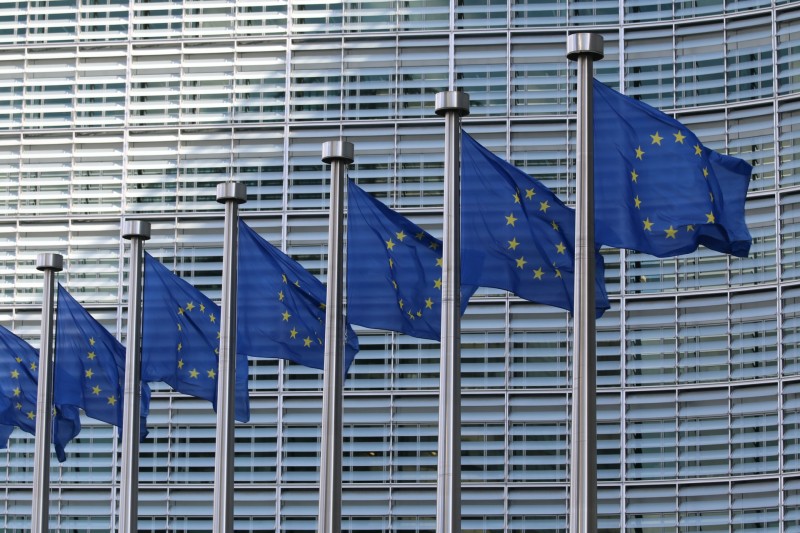COVID-19 - We are all on the same boat
The moment of collective responsibility has come. We must act as an international community of active and informed citizens. If we keep on ignoring or underestimating the disease, our inaction will contribute to the growth of theviruswith further and dangerous consequences which remain widely unnoticed.
The advance of Coronavirus in Italy, in Europe and in the world is proving to be an issue that we cannot ignore. The WHO recently declared that we are facing a pandemic situation and that the virus is no longer a national or geographical probl. It is a global threat.
For too long, we have underestimated this virus and its crucial health and economic consequences. For too long, we have deemed the COVID-19 a regular viral infection, when all the main official scientific sources agree that the two viruses are substantially different (https://bit.ly/ 2TQlXVi).
What is happening in Italy and Europe is showing another worrying aspect of this virus: the risk of an uncontrolled mass contagion. The latter, indeed, has become a concrete risk, because the virus is highly contagious and is forcing 60% of patients to require hospitalization, of which 10% in intensive care units . Since there is no cure or vaccine, many doctors are relying on respiratory support therapies through intubation and mechanical ventilation to aid the healing of more seriously sick patients. You can find more information on this at the following link: https://bit.ly/2IQdFGF.
The massive increase of infected people is putting a strain on the sustainability of the national health system, which is facing the concrete possibility of exhaustion, followed by collapse. This is a real threat that unfortunately Italians and Europeans are directly experiencing in their lives, family and community. The high number of infections and hospitalizations is not only undermining the health of the weakest and most exposed people, but also our national security (https://bit.ly/2QmPJPp). Moreover, the spike in requests for assistance is seriously affecting the NHS that is facing a lack of staff and beds (https://bit.ly/2IQeejK). We should not reach this point.
The rise of the virus to other areas of the globe is not encouraging at all; the confirmation by the WHO of the advance of the virus concretely threatens the health of millions of people who unfortunately are forced to live in national contexts suffering from a strong lack of primary health material to face a mass contagion (https: //bit.ly/3b2p4PW). What if the virus spreads to uncontrolled levels? How long could health systems of contexts such as sub-Saharan Africa, where there is one doctor for every 5000 inhabitants (https://bit.ly/3d40wHV), resist? What about Russia and its HIV-positive 1,000,000 people (https://bit.ly/2QopFnc)? What will happen to those 44 million Americans who, despite having a mere health coverage, will still have to pay considerable amounts? What will happen to all those other 30 million of US citizens who have no insurance, and will be forced to pay all unforeseen medical expenses (https://bit.ly/2TSGJnk)? Or Latin America where the virus is silently progressing and threatening an already precarious, unstable and delicate health and economic system (https://bbc.in/2WbsT13)? We could continue indefinitely with the examples.
The theory according to which it would be possible to contain the spread of Covid-19 by trying to reach the peak of the epidemic, without completely eliminating it, through the natural immunity that people should gradually acquire is a strategy based on the so-called “flock immunity”. However, a strategy based on group immunity presents more than one question and there is no certainty that it can succeed in the case of COVID-19 (https://bit.ly/2xJCX7g). The preventive strategy aimed at reaching a massive group immunity seems to be highly risky and destructive in numerical terms, if it proves to be a failure (https://bit.ly/391EUJi).
Too many people still do not comply with the rules, the common prevention measures and indications given by official authorities to contain this virus. Many national governments (https://bit.ly/2TWCnLO) are still underestimating the extent of this virus, as well as its dangerous side effects: above all, (1) the risk of an even more globalized massive contagion in areas of the world that are unprepared to face uncontrolled levels of infections; (2) the risk of an uncontrolled increase of urgent cases from intensive care that could seriously jeopardize and undermine the National Health Systems all around the world; (3) deprive those with serious diseases of the possibility to find medical assistance.
Why this open post?
Because the virus knows no boundaries and has already spread throughout the world. Because we believe in people’s common sense and in the spirit of solidarity and cooperation. Because the virus we face is less dangerous if we act en masse and strategically. Because the challenge for all countries lies in the single, sole and responsible priority of protecting the fundamental health rights of each citizen by implementing measures aimed at slowing the virus, not facilitating its expansion.
With this post we felt compelled to remember that we are all involved in this challenge. We are facing a global emergency. This is not just a public health crisis, but rather an emergency that will affect all sectors and we must all be involved in the struggle to defend our mutual integrity and safety.
So what to do?
- Let’s start with an assumption: if your government is not doing enough to contain the virus expansion, this does not mean that the virus is not already circulating and spreading without your knowledge. Don’t panic, but don’t underestimate it neither. Be smarter and act responsibly.
- The perception of lower risk in less affected areas does not prevent all of us as citizens from acting before the emergency arrives, from being a good example, from following the indications issued by WHO to protect ourselves and the others, as well as starting to limit unnecessary human contacts, frequenting overly crowded places (cinemas, restaurants, concerts, bars, aperitifs, disco parties and so on) and to start already staying at home as much as possible.
- We are called to spread common sense to make informed decisions which help our community move towards civil and preventive behavior. Look at what happened in Italy and Europe. Talk with the people you love, friends and family and push them to follow all the preventive measures required to contain this virus.
- Positivity: the time for criticism will come and then we will have a common cause not only to get angry, to invert our economies in the primary and absolute good of public health, but also to rethink the inadequacies of this system and how to change it. But this is not the time. Now we need responsibility, good examples and action.
Health. Humanity. Solidarity. Prevention. Preparation. Responsibility. Cooperation. Resistance.
This is a pandemic that can still be contained. But we must act promptly. Those who decide to give up basic public health measures may end up with a bigger problem and a heavier burden on all health systems around the world. We citizens can do our part, albeit small, in our daily lives and turn on the lights of information and prevention.
SHARE THIS POST ON YOUR FB PROFILE AND VIA WHATSAPP!
THE SMALL EXAMPLE OF EACH OF US CAN MAKE A DIFFERENCE!
Thank you.
Leonardo Brambilla & Giuseppe Caretto.
Two Italians in Brussels



